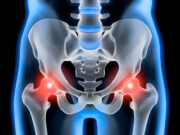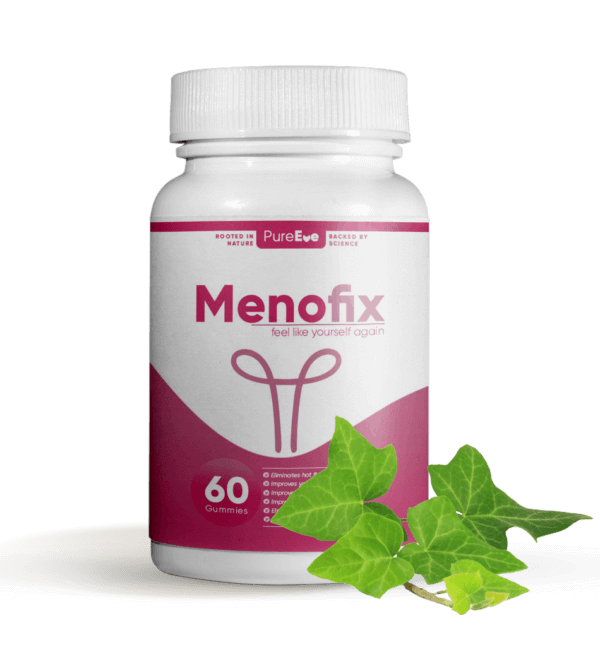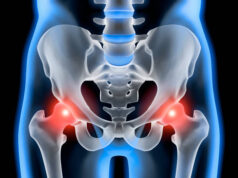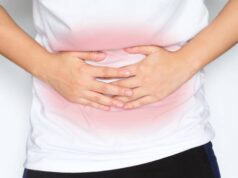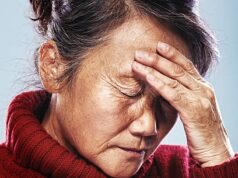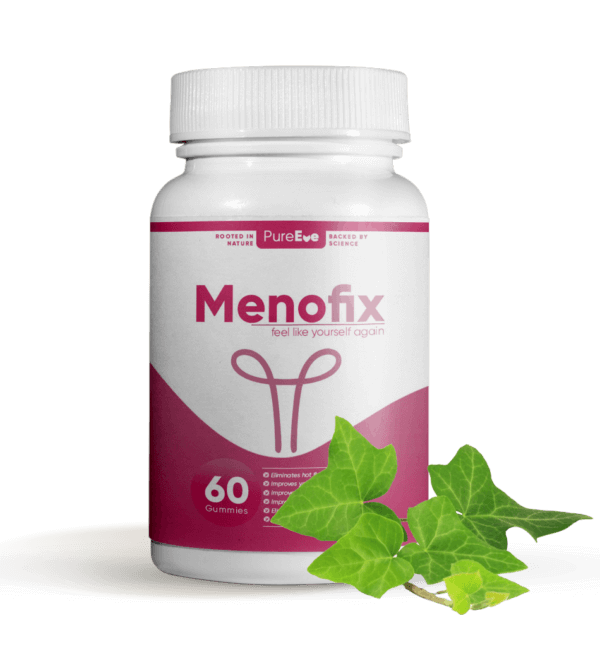As women approach menopause, their bodies undergo several hormonal changes one of the most common and uncomfortable being vaginal dryness. While it’s a natural part of aging, the silence around this topic often leaves many Nigerian women feeling confused.
If you’ve noticed itching, burning, pain during intimacy, or a general feeling of dryness “down there,” you’re not alone. Studies show that over 50% of menopausal women experience vaginal dryness, but only a few seek help or discuss it openly.
Fortunately, vaginal dryness is treatable and manageable. In this article, we’ll discuss what causes it, how it feels, and effective ways both natural and medical that women can use to stay comfortable and confident during menopause.
What Is Vaginal Dryness?
Vaginal dryness refers to a lack of natural moisture in the vaginal walls, leading to discomfort, irritation, and pain during sex. Normally, estrogen (a key female hormone helps keep the vaginal tissues healthy, elastic, and naturally lubricated).
However, when estrogen levels drop (especially during perimenopause and menopause), the vaginal walls become thinner, less elastic, and less able to produce moisture. This condition is known medically as vaginal atrophy or genitourinary syndrome of menopause (GSM).
What Are the Causes of Vaginal Dryness?
Vaginal dryness can result from various factors, but the leading cause is decrease estrogen levels during menopause. Here are the main triggers:
1. Hormonal changes:
Menopause or perimenopause leads to low estrogen.
Breastfeeding or childbirth can temporarily reduce estrogen too.
2. Certain medications:
Antihistamines (for allergies), antidepressants, and medications for high blood pressure can reduce vaginal lubrication.
3. Stress and anxiety:
Chronic stress affects hormone production and lowers arousal, which impacts natural lubrication.
4. Lack of sexual activity:
Regular sexual activity promotes blood flow and elasticity. Lack of it can worsen dryness.
5. Smoking:
Smoking reduces blood circulation and lowers estrogen levels.
6. Medical treatments:
Chemotherapy or radiation therapy can damage the vaginal tissues and decrease moisture levels.
Symptoms of Vaginal Dryness
Vaginal dryness can feel different for each woman, but common signs include:
- Persistent itching or burning in the vagina
- Pain or discomfort during intercourse
- Tightness or soreness in the vaginal area
- Light bleeding after sex
- Frequent urination or burning during urination
- Recurrent urinary tract infections (UTIs)
If you experience any of these symptoms regularly, it’s important not to ignore them. Vaginal dryness doesn’t just affect sexual health; it can impact confidence, relationships, and overall quality of life.
How Does Menopausal Vaginal Dryness Feel Like?
Many women describe menopausal vaginal dryness as a constant dryness or tightness that doesn’t go away, even when aroused. Some say it feels like “sandpaper” or “burning heat” during sex.
During menopause, the lack of estrogen means:
The vaginal tissue becomes less stretchy, less blood flows to the vagina and the glands that produce moisture become less active.
As a result, even gentle friction can cause pain, tears, or irritation. Emotionally, it can lead to anxiety about intimacy or avoidance of sex altogether.
What Is the Best Lubricant and Moisturizer for Menopausal Vaginal Dryness?
For Nigerian women dealing with menopausal dryness, finding the right lubricant or vaginal moisturizer can make a big difference.
1. Vaginal Lubricants
These are short-term solutions used before or during sexual activity to reduce friction.
Water-based lubricants (e.g., K-Y Jelly, Durex Play): Safe, easy to find, and non-sticky.
Silicone-based lubricants: Last longer and don’t dry out quickly great for severe dryness.
Avoid petroleum-based products like Vaseline; they can irritate and damage vaginal tissues.
2. Vaginal Moisturizers
These work longer-term by restoring hydration to the vaginal tissues.
Use products containing hyaluronic acid or vitamin E.
Some natural options include aloe vera gel or coconut oil (ensure they are pure and unscented).
Tip: Always do a patch test before using any new product, especially natural oils.
Vaginal Dryness Natural Remedies
If you prefer a natural approach before trying medications, here are remedies that work well:
1. Stay hydrated:
Drink at least 2–3 liters of water daily. Dehydration can make dryness worse.
2. Eat estrogen-rich foods:
Nigerian foods like soybeans, flaxseeds, and locust beans (iru) contain phytoestrogens that help balance hormones naturally.
3. Use natural oils:
Coconut oil or vitamin E oil can be applied around the vaginal entrance to relieve mild dryness.
4. Practice regular intimacy:
Sexual activity increases blood flow to the vagina and helps maintain elasticity.
5. Pelvic floor exercises (Kegels):
Strengthening pelvic muscles can improve blood flow and vaginal tone.
6. Avoid irritants:
Stay away from perfumed soaps, scented pads, or harsh detergents.
How Is Vaginal Dryness Diagnosed?
A doctor (preferably a gynecologist) can diagnose vaginal dryness through:
- Medical history review: discussing symptoms, sexual activity, and medications.
- Pelvic exam: to check the texture, color, and elasticity of vaginal tissue.
- pH test: menopausal vaginal dryness often raises vaginal pH.
In some cases, your doctor may recommend hormone level tests to confirm menopause.
How to Treat Vaginal Dryness
Treatment depends on the severity of your symptoms. Here are the main approaches:
1. Hormone-Based Treatments
Vaginal estrogen creams (e.g., Ovestin or Premarin): applied directly to the vagina to restore moisture.
Estrogen rings or tablets: inserted into the vagina for slow, consistent hormone release.
Systemic hormone replacement therapy (HRT): for women with multiple menopausal symptoms.
Tip: Always consult your doctor before starting any hormone treatment.
2. Non-Hormonal Treatments
Vaginal moisturizers (like Replens or YES VM) used several times a week.
Prescription medications like ospemifene (a non-hormonal pill that mimics estrogen).
3. Lifestyle Changes
Quit smoking.
Exercise regularly.
Manage stress with yoga, meditation, or walking.
What Is an Abnormal Condition of Vaginal Dryness?
If vaginal dryness is accompanied by:
- Bleeding after sex
- Severe pain
- Unusual discharge
- Persistent itching
It may indicate an infection, vaginal atrophy, or other underlying conditions. In such cases, it’s important to see a healthcare provider for proper evaluation.
How to Prevent Vaginal Dryness
Prevention is better than cure. Here are simple habits that help:
- Always stay hydrated.
- Avoid douching and perfumed feminine products.
- Engage in regular, pleasurable intimacy.
- Eat balanced meals with plant-based estrogen sources.
- Manage stress and get enough rest.
- Keep up with gynecological checkups.
When to See Your Doctor
Seek medical help if:
Vaginal dryness causes pain, bleeding, or frequent infections.
Home or natural remedies don’t bring relief.
You have pain during sex that affects your relationship.
Doctors can recommend safe treatment plans tailored to your health needs and hormone levels.
Common Questions
1. Is vaginal dryness common?
Yes. It affects more than half of menopausal women, though many don’t talk about it.
2. Can menopause cause severe dryness?
Absolutely. Menopause reduces estrogen drastically, which directly causes dryness and discomfort.
3. How do I know if I have vaginal dryness?
If you feel itching, burning, or pain during sex, or notice tightness or soreness, you may be experiencing vaginal dryness.
4. Why is my vagina dry during sex?
Low estrogen, stress, certain medications, or lack of arousal can cause vaginal dryness during intimacy.
Final Thoughts
Vaginal dryness during menopause is common but treatable. Nigerian women don’t have to suffer in silence with the right care, open conversations, and medical guidance, you can restore comfort, confidence, and pleasure in your body.
Remember, menopause is a natural transition, not an end to womanhood or intimacy. Embrace your health journey with confidence and seek support when needed.


